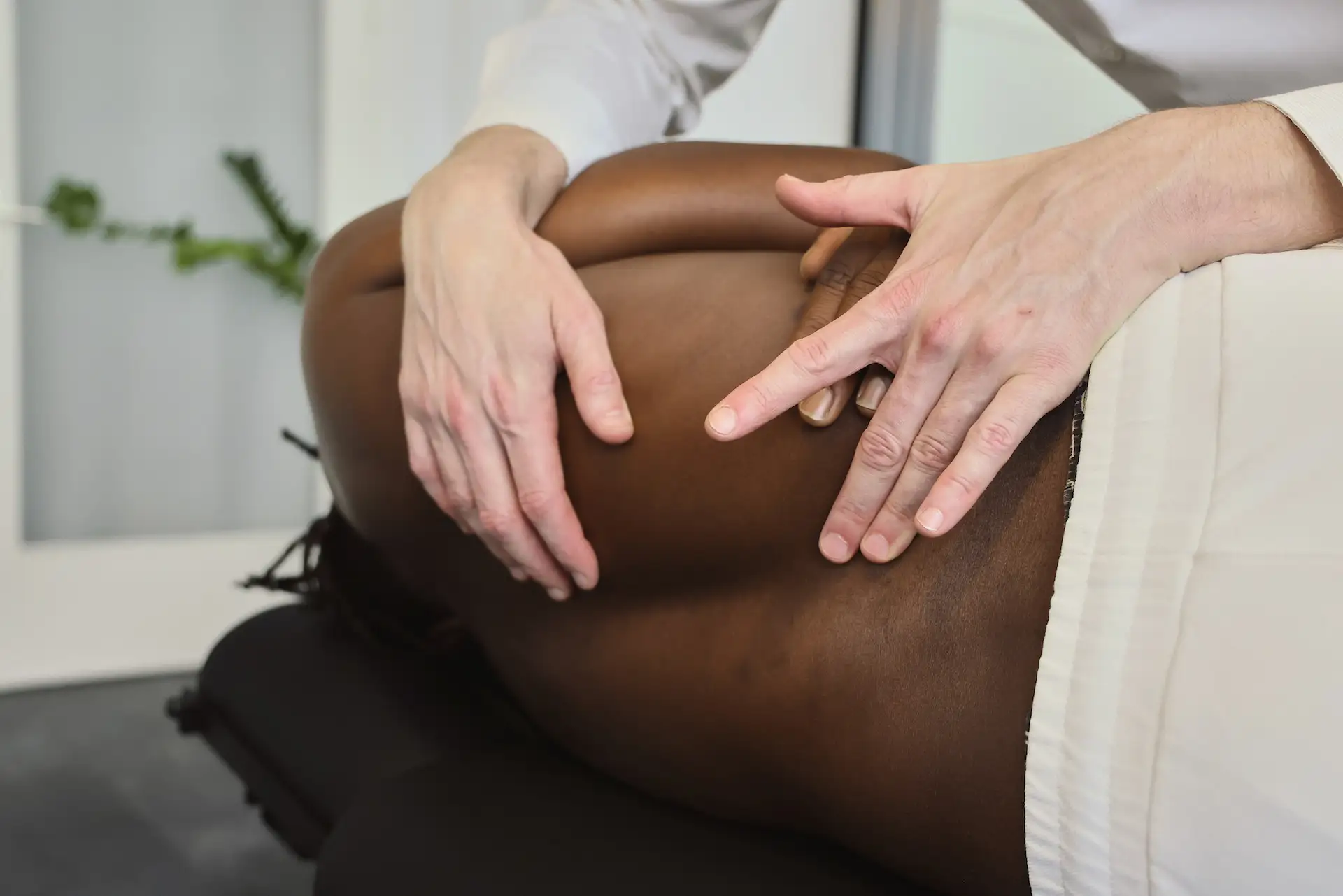Why you should not ignore back pain

Why does the back hurt anyway?
The back is a highly complex system of bones, joints, intervertebral discs, muscles and nerves. It carries us through life every day, protects the spinal cord and enables movement. At the same time, due to its complexity, it is also susceptible to stress and malfunctions.
The most common causes of back pain include:
- Lack of exercise, constant sitting and weak core muscles that do not adequately stabilize the spine
- Stress, which leads to increased muscle tension and influences pain processing in the nervous system
- Bad postures and one-sided loads that lead to long-term muscular imbalances and overloads
- Age-related wear and tear (degeneration) on intervertebral discs and small vertebral joints
Back pain is therefore usually a sign that the back needs support — whether through more exercise, targeted training or therapeutic measures.
When is it absolutely necessary to react?
Many back pains are harmless and go away on their own after a few days or weeks. However, there are clear warning signs that you should definitely see a doctor or specialist therapist promptly:
- pain that radiates to arms or legs and is associated with tingling, numbness, or muscle weakness (evidence of nerve involvement)
- Very severe, sudden onset of back pain, particularly after an accident or fall
- Difficulty urinating or defecating and numbness in the genital or buttock area (possible sign of CAUDA equina syndrome, an emergency)
- Back pain associated with unexplained weight loss, night sweats, or fever, which may indicate an inflammation or tumour
When in doubt, it is better to have too much medical examination than to overlook a serious cause.
What happens when you ignore back pain?
If back pain is ignored over a long period of time, it can develop into a chronic pain syndrome. Gentle postures often lead to further muscular tension, which increases the symptoms. At the same time, the range of motion becomes smaller, muscles break down and joints become more immobile.
Another problem is so-called pain memory: If pain persists for weeks or months, the perception of pain in the nervous system changes. Pain stimuli are then amplified or even perceived without an actual trigger. As a result, pain persists even after the original cause has long been resolved.
Psychological consequences: When pain affects the mind.
Chronic back pain is not only a physical burden, but can also significantly affect the psyche. Over time, many of those affected develop fears of exercise (“I shouldn't stress myself, otherwise it will get worse”) or withdraw from social activities. This increases the risk of depressive moods or even depressive illnesses.
At the same time, studies show that stress, worry, and depressive symptoms can themselves increase the perception of pain. A vicious circle is created: Pain burdens the psyche, and the strained psyche in turn intensifies the pain.
It is therefore important to always look at back pain holistically and, if necessary, seek psychological support in order to break this cycle.
What can you do?
In most cases, back pain is easy to treat — and even better prevent.
- Movement is the central tool. Bed rest should be avoided except in rare exceptional medical cases. Instead, regular, even gentle movements are useful.
- Warmth, stretching, and relaxation can help loosen tight muscles.
- If symptoms persist, the cause should be clarified by a specialist, chiropractor or physiotherapist. There are often functional problems in the small vertebral joints or muscles behind them, which can be treated specifically.
- Relaxation techniques or psychological procedures can also help to reduce stress and improve the way you deal with chronic pain.
conclusion
Back pain is common but should never be dismissed as harmless. They are often an important signal from the body that must be taken seriously. If you react in good time and seek advice, you can prevent acute symptoms from becoming chronic — and at the same time ensure a healthy, resilient back and balanced emotional well-being.

.webp)

.webp)
.webp)